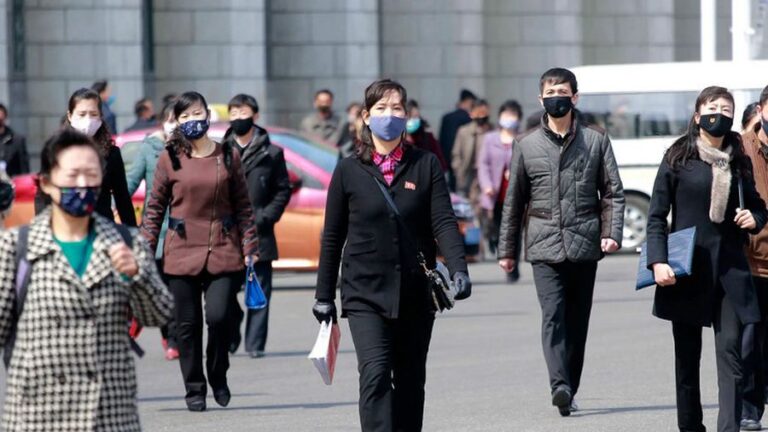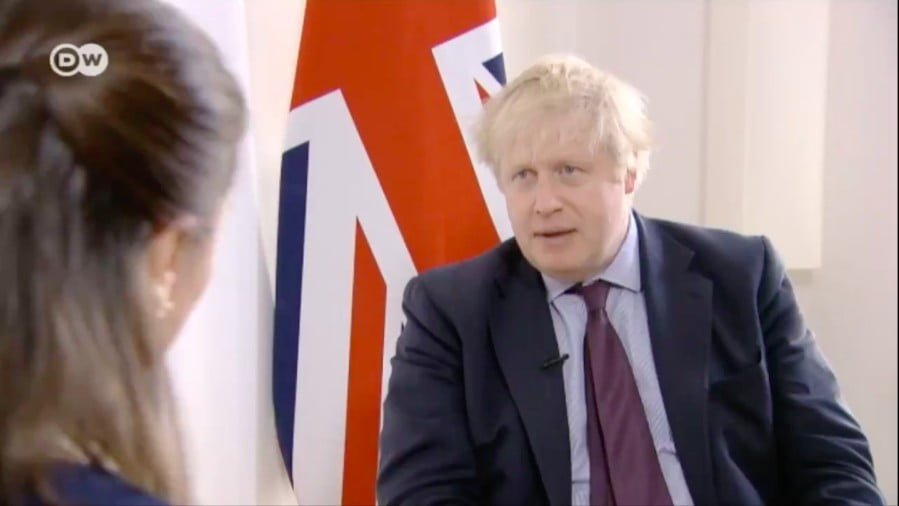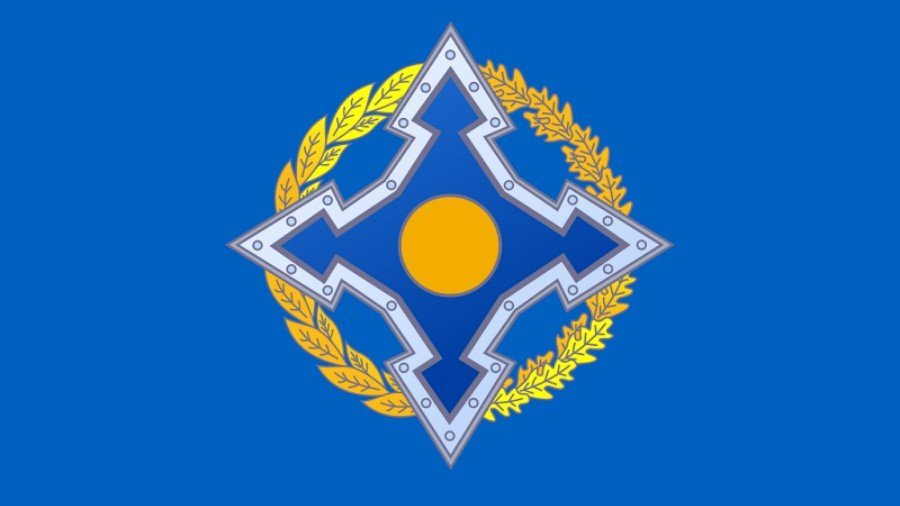Better the Virus than Putin? In the Information War Against Russia, COVID-19 Is Just Another Weapon
We need to talk about the Western media’s coverage of Russia’s battle with Covid-19. Rather depressingly, it seems many outlets, and hacks, are rooting for the virus against “the Russians.”
You might think that during this sort of emergency, they’d have the good grace to lay off the “info wars” for a while. But, sadly, that hasn’t happened. Instead, coverage has become even more toxic.
Here’s what you got early on Tuesday morning if you entered “Russian response to Covid-19” into Google.
- Putin is distancing himself from Russia’s virus outbreak. But it could still damage him politically (CNBC)
- Coronavirus takes a serious turn in Russia, and Putin no longer radiates confidence (CNN)
- ‘All The Hospitals Are Full’: Russia’s Healthcare System Scrambles as Covid-19 Cases Rise (US state-run RFE/RL)
- Ambulance jams, unprotected doctors, and mixed messages from Putin: Inside Russia’s chaotic response to the coronavirus pandemic (Business Insider)
There are more, but you’ve probably got the gist by now. What you have here is a collection of hokum, hogwash and hooey. Not so much failing to see the wood from the trees as chopping down the forest, lest a perceived opponent obtain use of the lumber.
Let’s be clear: Russia’s response to the coronavirus has not been perfect. But, so far, the country has been significantly less affected than Britain or America, and this appears to have deeply upset the US/UK media. Here are the Covid-19 stats, again as of Tuesday morning (according to data from Johns Hopkins University, Worldometer and UK reports).
- Total tests: USA 4.0 million, Russia 2.1 million, UK 0.33 million.
- Total cases: USA 788k, UK 125k, Russia, 52k.
- Total deaths: USA 42,518, UK 16,509, Russia 456.
It’s also worth pointing out that there is no evidence of a coronavirus coverup in Russia. Needless to say, if there were one, the Anglo-American press would have found it by now and long since amplified it to the world.
Furthermore, Russia’s figures for the deceased are broadly similar to those of its large eastern European neighbors (Poland 385, Ukraine 161), but the thing that differs significantly is testing. While Russia has carried out over two million, Poland has conducted just under 215,000 and Ukraine only 61,997. Thus, if there really is a story of concealment or misreporting east of the Elbe, it’s arguably more likely to be coming from Kiev or Warsaw, than Moscow.
However, as Ukraine is a US client state, Western media, generally speaking, doesn’t cover its affairs critically: Ukrainian elites “may be sons of bitches, but they are our sons of bitches,” etc. Much like how Russia received broadly favorable coverage in the 1990s when Boris Yeltsin’s Kremlin supplicated itself to Washington. Meanwhile, the misery, torment, hardship, and pauperism of millions was largely de-emphasized, underplayed and glossed over. Except when it could be exploited for dramatic, comedic or cautionary effect.
As modern Russia refuses to beseech Uncle Sam for mercy, it bears the full brunt of the US/UK media’s butthurt.
Look at the BBC. Britain’s state broadcaster was complaining at the weekend about the fact that Russians don’t publicly clap for healthcare workers. An empty, superficial trend suddenly embraced by an England that recently re-elected a party – with a huge majority – which has defunded medical services for almost a decade. On the radio, its Moscow correspondent told Brits that it’s because in Russia there is no ‘culture of public heroes,’ while implying that only Vladimir Putin is permitted to enter that sacred space. He delivered his report in that sort of lethargic, humdrum, platitudinous, and monotonous English-voice which suggests the speaker could collapse into 40 winks at any moment.
The reason Russians aren’t out on the streets doing Kumbaya for hospital staff is that they aren’t given to frivolous, shallow and perfunctory hypocrisy. They are not a people teetering between the stiff-upper-lip and a ‘Princess Diana’ moment. To be blunt, Russians are not into skin-deep displays.
On the same weekend, the same reporter showed up on BBC television, describing a “health system under pressure.” Yet he wasn’t describing his homeland, where unions say medics may walk off the job due to a shortage of personal protection equipment. Instead, he was telling Brits about how dreadful things supposedly are in Russia, which has carried out SIX TIMES more tests for the killer disease, but has less than three percent of the Covid-19 deaths of Britain.
Steve Rosenberg could have told his audience this. But he chose not to – or perhaps knew better than to mention that inconvenient truth. After all, imagine the confusion and stupefaction that could overwhelm BBC listeners and viewers if they suddenly discovered Russia isn’t actually Mordor – an area of peril and darkness which people fear to visit or explore?
The BBC has no interest in covering Russia fairly. Its agenda is more about ‘narrative management’ and ensuring folks back home think the other big European country which is not in the EU is always up to no good.
It’s not just the BBC. Their American brethren at the New York Times have also prostrated and abased themselves at the altar of Edward Bernays. Here’s its Moscow correspondent on Saturday. “Great and interesting story by Katrin Bennhold, also, a striking photo caption, as seen from Moscow,” Anton Troianovski wrote. “The testing teams, often made up of medical students, are accompanied by police to reassure the public.”
So, let’s compare some more stats. Again, as of Tuesday morning:
- Total Tests: Russia, 2.1 million, Germany 1.7 million.
- Total Cases: Germany 141k, Russia, 52k.
- Total Deaths: Germany 4,404. Russia 456.
Has Anton Troianovski covered Russia’s remarkable success compared to Germany? No, he has not. Instead, his most recent dispatch was headlined “In Pandemic’s Grip, Russia Sees Spike in Age-Old Bane: Drinking.”“The widespread, false belief that alcohol will protect drinkers from the coronavirus is helping drive an increase in liquor sales and domestic violence,” read the subhead.
As Moscow-based Jonny Tickle has pointed out, Troianovski’s story is absolute rubbish. In actual fact, “in the first week of April (March 30 to April 5), vodka sales dropped 41 percent compared to the previous month’s first week. Meanwhile, beer sales were down by 26 percent,” he wrote. Indeed, these days, Russians also drink less booze than their German or French counterparts – another salient fact ignored by the New York Times.
The paper was at it again on Monday, tweeting about how “Komi, a remote region in Russia that’s nearly as big as California but only has a handful of mostly decrepit hospitals, is facing a serious health crisis.” Komi might be as big as California, but its population is similar to that of Delaware (about 900,000). It’s like describing Greenland in the same terms as Mexico, because of size, when its headcount is more in the range of Andorra. What’s more, guess what the New York Times chose to illustrate its agitprop with? A picture of a frozen graveyard. As RT’s Oksana Boyko noted: “Are we supposed to think that all these graves are of Covid-19 victims? How manipulative is that?”
Now, let’s circle back to the initial four headlines on Google. Three of them, predictably, hinged on Putin, because his very name is sure-fire clickbait. They are all dependent on the idea that Russia’s Covid-19 response is somehow damaging the president. Now, there may be some truth in that from the economic point of view. If living standards seriously atrophy in Russia, the government will likely become unpopular.
US/UK media, nevertheless, isn’t happy to simply pursue this legitimate angle. Instead, it’s pushing some bizarre narrative based on the notion that Putin has gone missing or abdicated his duties. “Don’t panic but the Kremlin seems to be putting out video of old Putin meetings and passing them off as recent ones,”tweeted the Guardian’s Shaun Walker, on April 7. The same day, Putin held a live conference. What’s more, the previous day, he held calls with Israeli PM Benjamin Netanyahu and Armenian PM Nikol Pashinyan. Walker could have found this out by checking the Kremlin website.
Some days later, Politico ran a bizarre bit of propaganda under the headline “As corona casualties mount, Putin keeps a low profile.”This appeared on April 16.
The week the Politico piece appeared, Putin held live meetings (online) on Monday, Tuesday, Wednesday, Thursday and Friday. Under Russian social distancing rules, the president is working from home, from where he also conducted phone calls with Emmanuel Macron (France) and Xi Jinping (China), among others. On Sunday, he even turned up with a fireside chat to mark Orthodox Easter.
In other words, it’s hard to avoid Putin right now. Yet, Politico chose to push disinformation.
There is plenty US/UK media could be worrying about. For example, the struggle between regional governors, or mayors, in the US with President Trump’s White House over the US coronavirus response. Or the immoral adherence to sanctions against poor countries like Iran or Venezuela during a global pandemic.
Instead, it directs its fire at Russia – a country that, whether by accident or design, is weathering the present storm better than any other major European country. You’d almost think the “free and fair” press has an agenda.
By Bryan MacDonald
Source: RT







